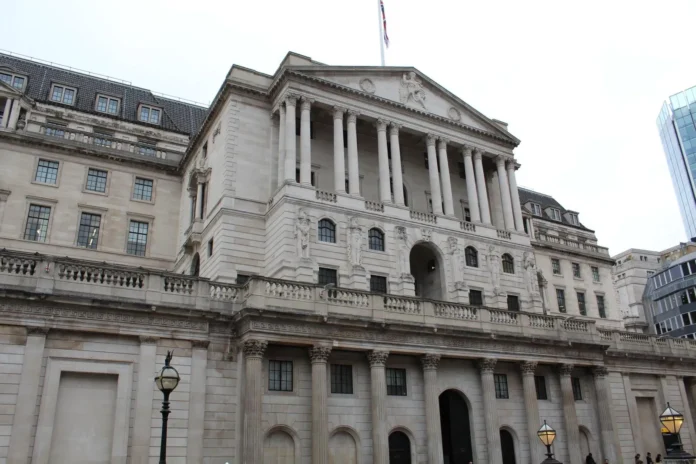A leading Bank of England policymaker has called for further interest rate cuts, dismissing April’s inflation surge as a temporary blip driven by global and fiscal shocks.

Alan Taylor, a member of the Monetary Policy Committee (MPC), said inflation’s rise to 3.5% last month was largely the result of “one-time tax and administered price changes,” including Chancellor Rachel Reeves’ employer tax increases and higher regulated charges such as energy caps and water bills.
“This isn’t inflation driven by overheating demand,” Taylor told the Financial Times. “It’s being driven by fiscal adjustments and global trade turbulence.”
DOWNSIDE RISKS
Taylor doubled down on his recent dissenting vote for a deeper cut in interest rates, citing increased downside risks from slowing global trade and the economic drag of former President Donald Trump’s trade policies. “There’s more risk piling up on the downside scenario,” he warned.
While GDP grew by a stronger-than-expected 0.7% in Q1, Taylor remains cautious: “I’m still pretty concerned about the way the economy is heading.”
At its May meeting, the Bank cut the base rate to 4.25%, its lowest level since 2023. However, the move revealed growing division within the nine-member MPC. Taylor and Swati Dhingra pushed for a steeper 50 basis-point cut, while Huw Pill and Catherine Mann argued for restraint amid persistent price pressures.
Taylor downplayed fears of sustained inflation. “The Bank’s forecast path shows an inflation hump – and then it’s going to go away,” he said.



